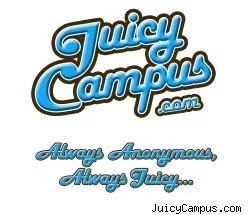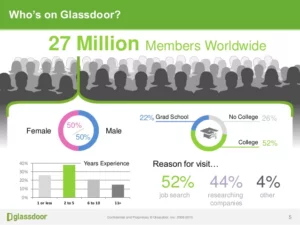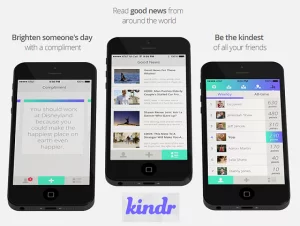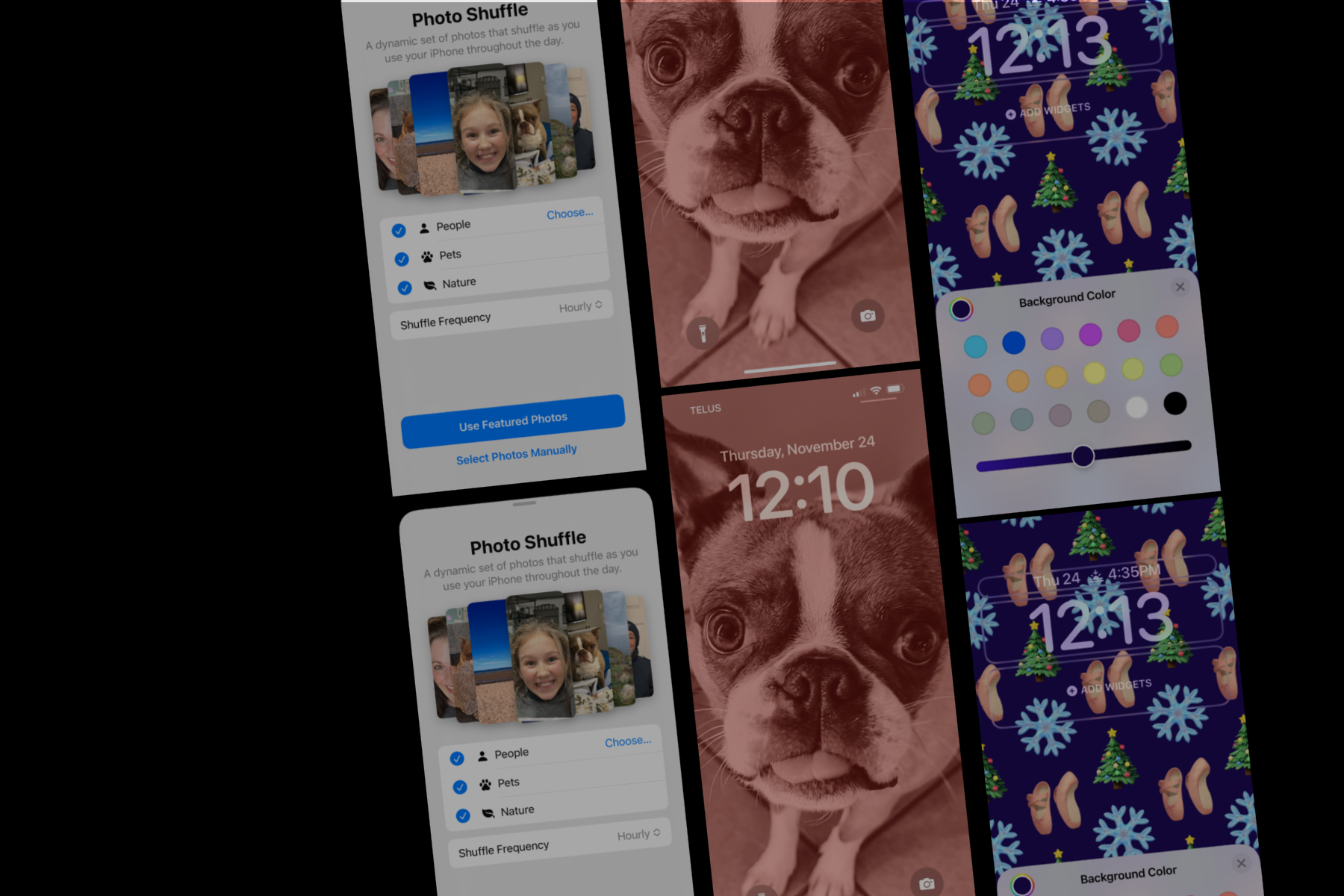October 18, 2017
5 Things You Should Consider When Using Anonymous Social Media

Back in 2007, a recent graduate of Duke University by the name of Matt Investor created an anonymous social media platform called Juicy Campus. The app was designed for college students and encouraged people to spread gossip about other students instead of talking about themselves. This lead to a wave of social media platforms designed specifically around the concept of anonymity, that would only continue to grow over the next couple of years.

Anonymous social media platforms were an instant hit. But was it really all that it is cracked up to be? Some say that this new form of social media leads to new possibilities in the world of self-expression, but other argued that this anonymous nature promoted too much openness. When there are no longer consequences associated with an action, what stops someone from saying whatever they want?
Platforms like Facebook and Twitter, make it easy to connect with family and friends all over the world. Keeping up to date with the important (and not so important) updates from distant relatives and the one guy that you talked to in high school gym class. But the main concept to remember here is no matter what you post or where you comment, your name and picture provide your identity.
Everything that you post and everything that you say online can be associated back to one person – you. With this kind of concept in place, it’s no wonder that there was a growing number of people turning to anonymous platforms. With no way to tell who is posting what, the freedom of what you can say is endless.
While most people are not quick to trust an anonymous poster/post online, there are still plenty of people reading them. Not everyone takes the time to reference where the post came from or who the person is that posted it. This leads to the question – is it fake because it’s anonymous? Or more credible because there is no filter?
Known Social Media vs. Anonymous Social Media
“Anonymous social media is a subcategory of social media where the main social functionality is to share and interact around content and information anonymously on mobile and web-based platforms.”

This type of functionality provides the average user with a layer of protection around basically anything they post or say on these platforms. Facebook and Twitter associate every tweet and post with to your name. And even if you create a fake profile, they have two levels of verification that associate you usually with an email and phone number.
This is easily traceable not only by police but by simply doing a quick google search as well. Due to this nature, anonymous social media platforms inspire a mindset of unbiased opinion – but the opinions shared are not always the most accurate.
Here are 5 things to consider before using Anonymous Social Media.
1. Danger of the Unknown
Ever been caught in one of those awkward situations where someone you just met shares a little too much information about themselves? That cringe-worthy feeling that bottles up inside of you? Now imagine that 10x over. The anonymous nature of these platforms allows individuals to potentially ‘overshare’ some of the lesser known facts about themselves. This creates a sense of vulnerability that may not always be taken in the way that is intended.
There is always potential the for slander or abusive posts on any kind of social media platform, but with limited accountability for these types of behaviours, the playing fields have been open to a lot more aggressive kinds of criticism. A Latvia based company by the name of Ask.fm (which allows users to ask anonymous questions to a certain known individual) won large backings but lost many of them when they were linked to cyberbullying.
Some anonymous apps like Whisper, have gone as far as to provide a disclaimer stating that any kind of abusive posts will be removed immediately. With all the negativity found in these kinds of situations, it’s hard to believe that they are still in place. But the fact of the matter is that with every negative, there comes a positive.
2. Benefits of Anonymity
In the sensitive society that we live in today, it’s hard to voice an unbiased opinion without someone taking it in a light that you may not have intended. Even in cases as simple as asking for advice on an assignment, or a recommendation for a hair salon.
Anonymous opinions open up a level of dialogue where the content is the character – not the person suggesting it. This can provide a more open perspective when it comes to sensitive issues as well. It takes away the perception of ‘ulterior motives’.
When it comes to talking about one’s self, we are not always the most honest. In one case, the anonymous app Whisper provided an outlet for open dialogue on the issue of self-harm. An anonymous post of Whisper lead to another user reaching out to this particular individual, who was about to commit suicide.
Another example can be made of the company, Glassdoor. Glassdoor holds a growing database of millions of company reviews, CEO approval ratings, salary reports, interview reviews and questions, benefits reviews, office photos and more. Unlike other jobs sites, all of this information is entirely shared by those who know a company best — the employees. The best part about this platform is that employees can post a review anonymously. This provides a more open and truthful environment, as well as creating a sense of transparency within the workforce.
Anonymous platforms open up a line of unbiased, non-judgemental conversation about some rather touchy subjects. The use case for this type of outreach is something that can be utilized in the coming years as well. With the growing number of professionals in the workforce, it can provide a separation between who you portray and who you are.
3. Your Persona
With outlets like LinkedIn, designed more for a professional standpoint, it can be hard to voice an opinion or share a thought that may be in line with the persona that you are trying to maintain. It’s not that you are looking to deceive an individual, but more than a certain standard of effort and etiquette is required on those types of platforms.
Anonymous outlets provide the average individual with a place to share opinions with others with the same perspective – without having to worry about what your boss or family member misinterpreting what was said. The wrong string of words taken by a certain individual can have damaging impacts to a person’s professional or family related personas.
Anonymous networks provide a sense of separation between ‘home/work life’ and personal interests.It is always enjoyable to have a chance to share one’s inner thoughts in a very vulnerable way. This kind of repeated use can be a healthy outlet to a new form of self-expression – when done with consideration and mindfulness.
4. Awareness
How many times have you been the last person to know about a certain situation? What if not knowing about the current situation could have had a large emotional impact on yourself or someone close to you?
It usually doesn’t feel the greatest to be the last to know everything. With a number of people that can be involved, as well the effort needed to communicate, is not always done to keep everyone up to date all the time.
Anonymous social media platforms inspire a sense of awareness, in that there is a place to openly talk about a situation at hand without being identified. This creates an influx of different perspectives and topics that may not have been addressed otherwise.
The above point can be made when it comes to breaking news stories. In a state of emergency or even personal emergency, information is needed fast and from a source that matters. News outlets and law enforcement professionals have gone so far as to utilize the unbiased and fast paced environment to share and communicate with a greater audience as well.
This can be seen on the growing anonymous platform known as Reddit, with specifically designed subreddits going so far as to even ask for assistance in finding and locating information on certain topics.
5. Ephemeral Qualities
The ephemeral aspect of anonymous social media can attribute to a larger number of meaningful topics and fast-paced posts within its platforms. Ephemeral simply means lasting for a very short time. Due to the fact that these networks imply these services – the information is quickly changing all the time.
These services are used on sites like Facebook and Twitter but do not enforce the user to necessarily use them to the degree that an anonymous platform would. 4chan a meme sharing anonymous social media platform employs this technology that essentially manages the posts by time.
With updates always coming in, they are limited to a certain time frame on the homepage so that new information can be posted in an orderly time frame. The greatest benefit to this kind of rapid-fire technology can be said when it comes to keeping up to date with important information.
These Things Happen

The argument can be made time and time again for the benefit and hindrance of anonymous social media. Ask.fm lost almost all of their investors when they were linked to verbally abusive users. “Juicy Campus” only lasted 18 months before venture capitalists finally realized that they were never going to turn a profit.
Contrary to this, sites such as Glassdoor have made a positive impact in the workforce. They are changing the face of job search and salary transparency and giving more power to the average employee. It has since been featured in The Wall Street Journal and Business Insider for its efforts in changing the face of transparency, and in 2012 it raised $20 million to take its product outside of the US.
When it comes to posting online, the possibilities still remain endless. There is no one way to control what a person thinks or does, but there can be something said about the way that it is delivered.
Change of Heart
After so much negativity that was found on the Juicy Campus platform, Matt Investor told Buzzfeed news that he found the students, teenagers and other users who spend a majority of their time online were craving positivity. Most people are sick of the “negativity” and the time and effort that is required to avoid it. Matt took this to heart and on October 3, 2012, he and a co-founder launched Kindr.

Kindr lets users send friends “compliments” or Hallmark like positive messages. This message of positivity had inspired a variety of new platforms that have their focuses on creating a positive and meaningful environment for every reader. As Investor had said in the interview before the release
“It (JuicyCampus) was six years ago, it was a different time on the internet when people didn’t understand the psychology of anonymity and all the complex issues that surrounded it — the concept of free speech versus bullying.”
Apps like Sarahah, Huddle and TBH (now owned by Facebook) have taken a leap into the unknown. The success of these apps now lies within the ability to take a step back from what your posting, or reading, and give it some thought. Make a judgement call on your own terms, and remember to be aware. There is a huge potential for this type of platform to grow in providing transparency for a number of things, but until they are taken with the appropriate respect and consideration there can be no change.
What are your thoughts on the progression in anonymity since Juicy Campus came on the scene? Have you encountered any of the above online? How often do you use anonymous social media? Let us know on Twitter!


